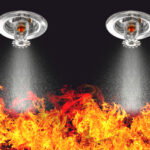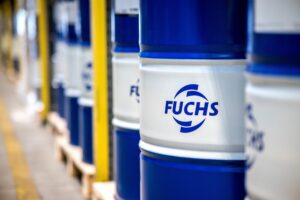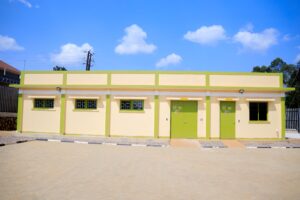In examining fire-safety issues related to polystyrene panels in cold storage, it is crucial to consider international standards and the inherent risks associated with this material, according to ASP Fire CEO Michael van Niekerk. “American codes, particularly those from FM Global, explicitly advise against using polystyrene in construction due to its combustibility,” notes van Niekerk.
Polystyrene begins decomposing at approximately 150°C, releasing styrene, a flammable vapour that can ignite once formed. The primary concern with ISO panels, which often have polystyrene cores, is their construction consists of a sandwich of two metal sheets encasing the polystyrene. The challenge is that the two metal sheets prevent water from being applied to the burning polystyrene, which will burn unchecked. The core can vary, with options like fire-retardant polystyrene, polyisocyanurate (PIR or ISO), and Rockwool, a non-combustible material made from melted stone.
“Insurers are typically hesitant to cover buildings constructed with any type of polystyrene without sprinkler protection,” highlights van Niekerk. The aim is to prevent fires from spreading into the polystyrene panel which, once ignited, is difficult to extinguish due to the metal casing. Although fire-retardant polystyrene exists, which self-extinguishes when the flame source is removed and does not spread the fire, insurers often remain sceptical.
Polystyrene engineered to require a higher oxygen content at 34% to burn, compared to the 21% oxygen level in the air, offers enhanced safety. However, insurers may not always appreciate these advancements, often due to a lack of engineering expertise.
Van Niekerk recommends that clients constructing cold storage facilities consult with their insurers early in the planning process to reach a consensus on the materials used, potentially avoiding the need for expensive sprinkler systems.
This proactive approach is particularly important for one-storey buildings where high storage necessitates sprinklers. Despite engineered polystyrene being safer, fire engineers and insurers still prefer non-combustible alternatives due to the uncontrollable nature of polystyrene fires.
Cost often drives the decision to use polystyrene, as it is cheaper than non-combustible materials. However, this can be a false economy if extensive sprinkler systems are then required. “Engaging a fire engineer before construction can help balance costs and safety, designing out unnecessary expenses,” stresses van Niekerk.
At present there are no specific South African regulations comparable to the stringent American FM Global standards, which prohibit plastics in construction. South African codes focus on structural stability, covering steel and concrete columns, but do not address the use of combustible materials in building skins. This regulatory gap leads insurers to insist on sprinklers, unaware that the building’s fabric itself meanwhile is more combustible, increasing the fire risk.
Van Niekerk concludes that while polystyrene panels are cost-effective and can be engineered for safety, they pose significant fire hazards. Effective fire safety planning and early consultation with insurers are essential to mitigate these risks and ensure compliance with safety standards.
Ends
Connect with ASP Fire on Social Media to receive the company’s latest news
LinkedIn: https://www.linkedin.com/company/asp-fire-pty-ltd/
Notes to the Editor
To download hi-res images for this release, please visit http://media.ngage.co.za and click the ASP Fire link to view the company’s press office.
About ASP Fire
ASP Fire operates across the entire African continent from its Gauteng base, providing professional, accredited fire risk management and support to its clients. ASP Fire designs, installs, and maintains a full range of fire detection and suppression equipment suited to clients’ needs. ASP Fire provides a holistic, proactive, and preventative fire solution based on integrated fire risk assessment, training, and consulting, with the installation and maintenance of fire detection and suppression systems that meet SABS, NFPA, FPASA, and SAQCC standards.
ASP Fire Contact
Michael van Niekerk
ASP Fire
CEO
Phone: +27 (0) 11 452 2169
Cell: +27 (0) 83 779 1701
Fax: +27 (0) 86 505 1030
Email: michael@aspfire.co.za
Web: www.aspfire.co.za
Media Contact
Thobile Ndlovu
Account Executive
NGAGE Public Relations
Phone: (011) 867-7763
Cell: 073 574 2931
Email: thobile@ngage.co.za
Web: www.ngage.co.za
Browse the NGAGE Media Zone for more client press releases and photographs at http://media.ngage.co.za
-

Insurers are hesitant to cover buildings with any type of polystyrene without sprinkler protection
ASP Fire CEO Michael van Niekerk - Polystyrene panels in cold storage facilities a fire risk_Approved
Polystyrene panels in cold storage facilities a fire risk_Approved






